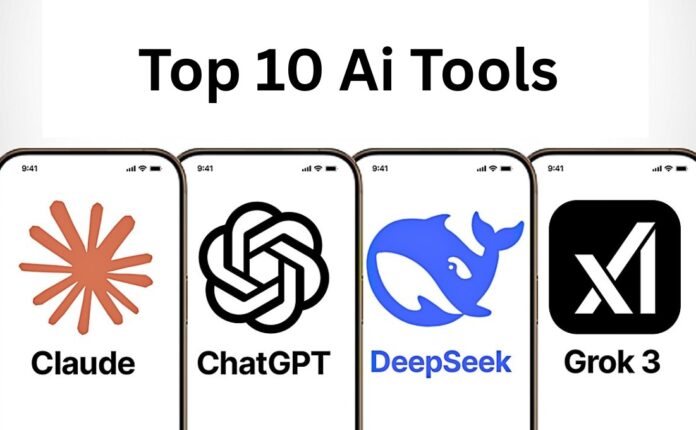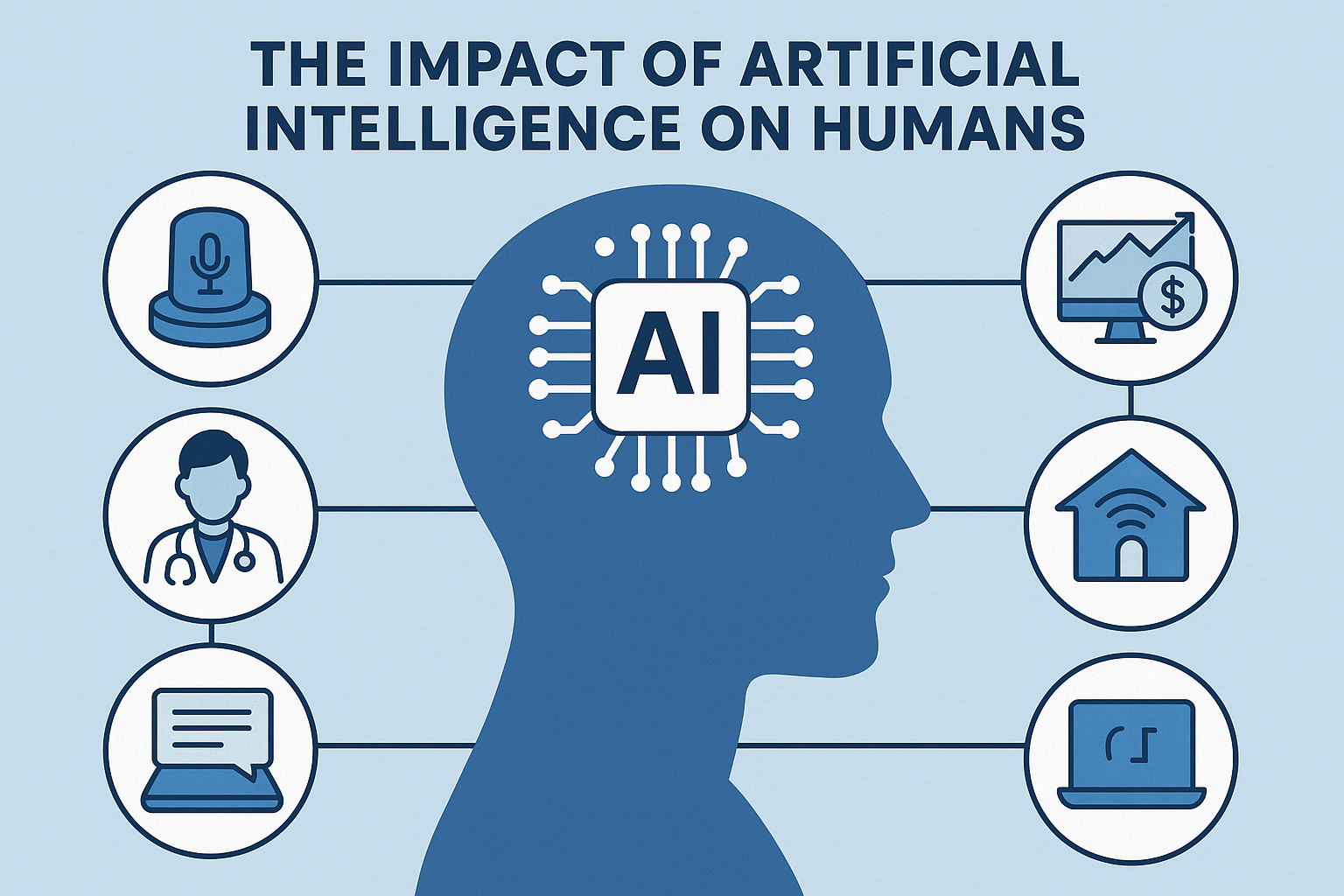Artificial Intelligence (AI) is no longer a futuristic concept; it is a transformative force already embedded in our everyday lives, revolutionizing how we live, work, and interact with technology. From smart homes and wearable devices to intelligent recommendations and voice assistants, AI is making our routines more efficient, personalized, and productive. One of the most noticeable changes is in smart home automation, where AI-powered devices like Google Nest, Amazon Alexa, and smart thermostats learn user habits to control lighting, temperature, and even security systems, offering comfort and energy efficiency. In addition, virtual assistants like Siri, Google Assistant, and Alexa have become household essentials, responding to voice commands, sending reminders, controlling appliances, and simplifying hands-free tasks. AI also plays a crucial role in personalized content recommendations, where platforms like Netflix, Spotify, and YouTube track user behavior to serve relevant movies, music, or videos, enhancing entertainment experiences and saving time. Healthcare has seen immense benefits from AI, especially in wearable technology and diagnostics. Devices like smartwatches track heart rate, sleep patterns, and oxygen levels in real-time, while AI systems assist doctors in identifying diseases like cancer or heart conditions faster and more accurately. Similarly, in education, adaptive learning platforms powered by AI, such as Duolingo or Khan Academy, tailor lessons to individual learning speeds, helping students grasp complex topics efficiently and enabling teachers to monitor progress through analytics. AI has also transformed e-commerce and customer service—online retailers like Amazon use AI to recommend products based on previous behavior, while chatbots answer queries, assist with orders, and offer 24/7 support, significantly improving user experience. Navigation and transportation systems are now smarter, too; apps like Google Maps and Waze use real-time data and AI algorithms to suggest the fastest routes, avoid traffic, and estimate arrival times accurately. In finance and banking, AI is being used for fraud detection, customer service automation, and robo-advisory services, allowing users to manage their finances smarter and safer. AI-based tools monitor suspicious activity, analyze spending patterns, and even assist in investment decisions, making financial management more accessible for everyday users. Another powerful area where Artificial Intelligence (AI) is having an impact is in security and surveillance—AI-driven facial recognition, motion detection, and real-time alerts help monitor public and private spaces with improved accuracy and reliability. Lastly, AI makes daily decisions and tasks more predictive and proactive. Whether it’s predictive text while typing, suggested destinations in navigation apps, or meal suggestions based on past orders, AI is silently enhancing our everyday decisions. Despite these remarkable benefits, the integration of AI into daily life also brings challenges—such as data privacy concerns, job displacement in repetitive sectors, and algorithmic bias—which must be managed through ethical development and transparent regulation. As AI continues to evolve and become more advanced, it is critical that society adapts responsibly by promoting digital literacy, reskilling the workforce, and implementing safeguards to ensure fairness and trust. The ultimate goal is not to fear AI but to harness its power to improve quality of life, increase productivity, and create opportunities. Whether you’re a student, professional, or business owner, understanding how AI is transforming daily life is essential for staying ahead in the modern world. To explore more on how Artificial Intelligence is shaping our future across multiple industries, visit Unfite.site for expert articles, trends, and tools that break down the role of AI in everyday human experiences. As we move forward, embracing AI not only means accepting innovation but also taking responsibility for how it influences our decisions, relationships, and societies. In short, Artificial Intelligence (AI) is not just a tool—it’s becoming a lifestyle enabler that is gradually changing what it means to live in a smart, connected, and intelligent world.
Artificial Intelligence (AI) is no longer a futuristic concept — it’s already integrated into your daily life. Whether you realize it or not, AI technologies are making your everyday experiences faster, smarter, and more convenient. Let’s explore the top 10 ways AI is transforming daily life in 2025.
1. Smart Home Automation
From adjusting your thermostat to turning off lights, AI-enabled smart home devices like Google Nest or Amazon Alexa learn your habits and automate your home environment for comfort and energy efficiency.
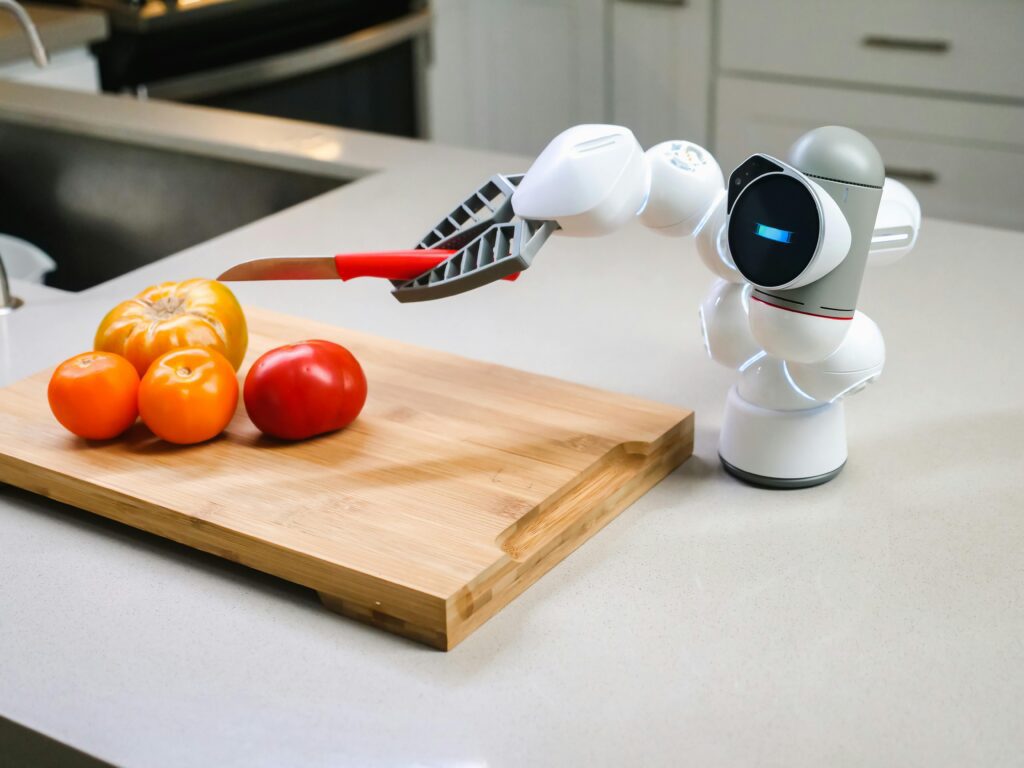
2. Virtual Assistants
AI-driven virtual assistants (e.g., Siri, Alexa, and Google Assistant) respond to voice commands, answer questions, set reminders, and even make phone calls — all hands-free.
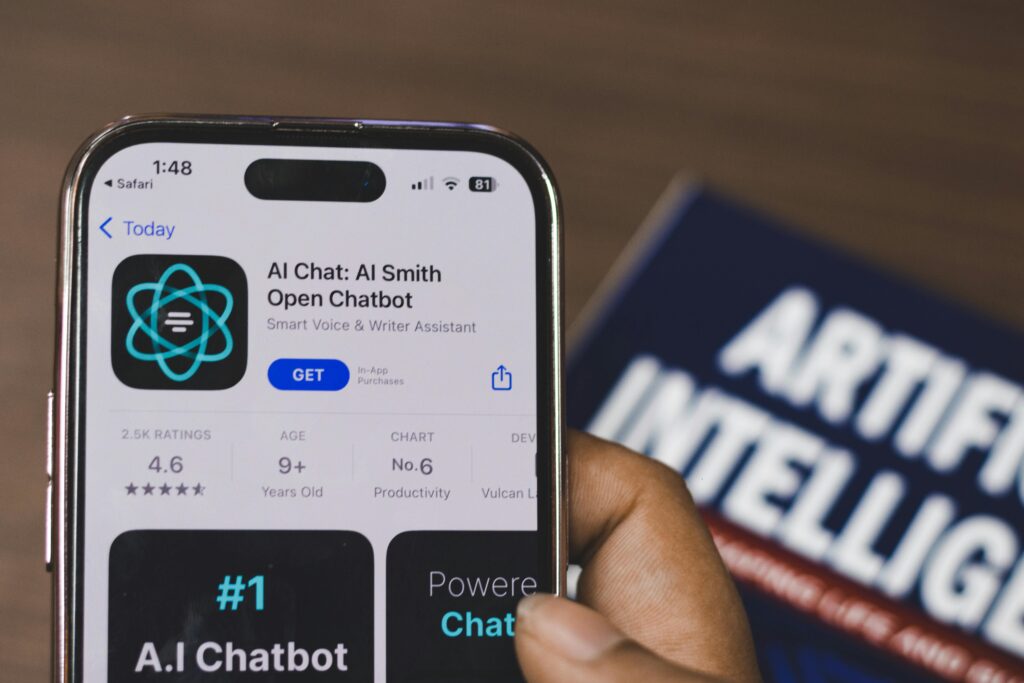
3. Personalized Content Recommendations
Streaming platforms like Netflix, Spotify, and YouTube use AI to analyze your behavior and recommend content you’re most likely to enjoy, saving you time and enhancing entertainment.

4. Healthcare & Wearables
AI-powered devices like smartwatches monitor your heart rate, sleep, and fitness levels. Apps use this data to alert you of potential health issues, helping prevent serious conditions.

5. AI in Education
Platforms such as Khan Academy and Duolingo use AI to personalize learning, offering tailored exercises and real-time feedback to help students master subjects faster.
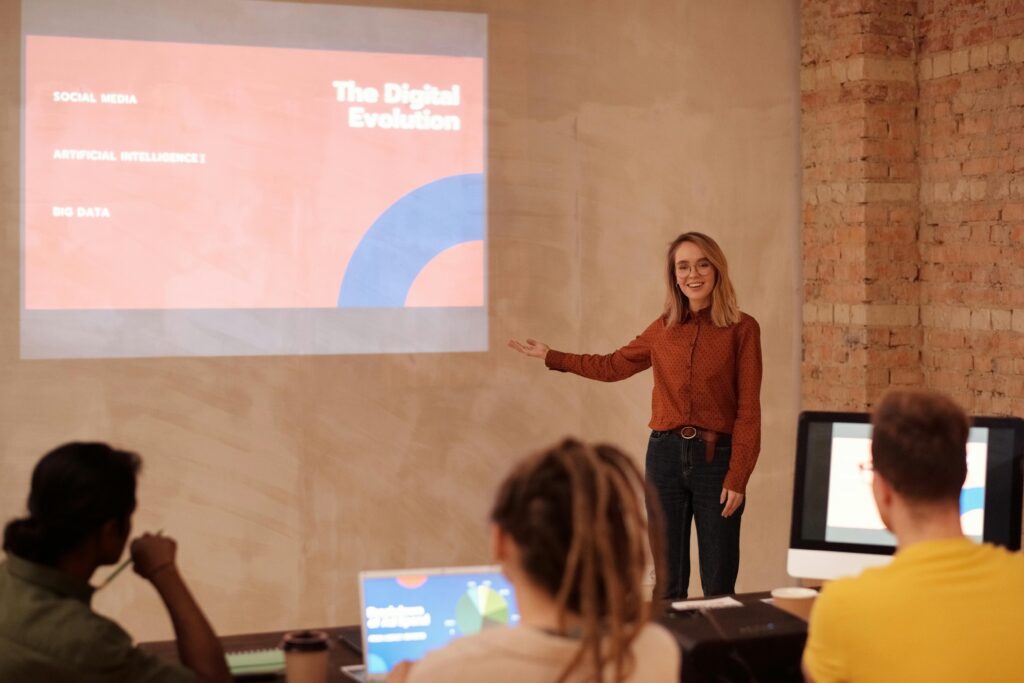
6. Online Shopping & Chatbots
E-commerce platforms like Amazon use AI to recommend products based on browsing behavior. AI chatbots assist with customer service, order tracking, and FAQs 24/7.

7. Navigation & Transportation
Apps like Google Maps and Waze use AI to analyze real-time traffic data, suggest the fastest routes, and even predict travel time based on patterns.
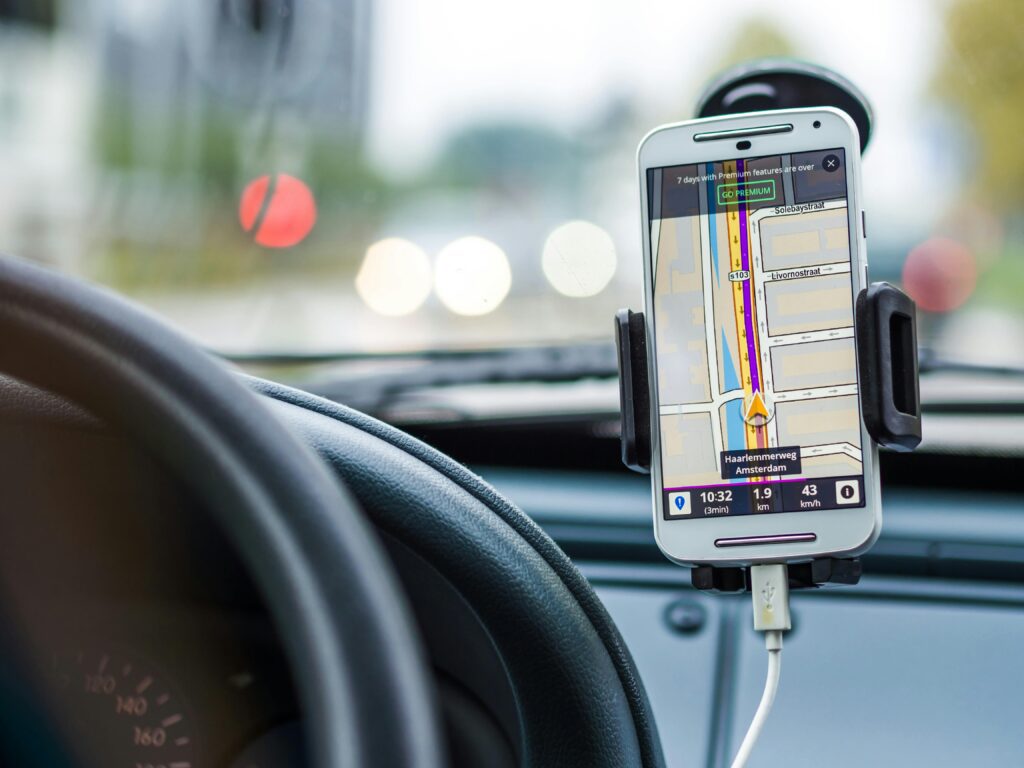
8. Financial Services & Banking
AI is revolutionizing personal finance. Robo-advisors manage investment portfolios, while fraud detection algorithms help prevent unauthorized transactions and identity theft.

9. Security & Surveillance
AI systems power facial recognition, motion detection, and real-time alerts in smart surveillance cameras, improving home and business security.

10. Everyday Predictive Suggestions
AI quietly enhances your life with suggestions like:
- Predicting your next destination in maps
- Autocorrecting and finishing your sentences
- Recommending what to eat based on past preferences
Conclusion
AI has woven itself into the fabric of our daily routine. It’s enhancing how we live, work, and interact — from morning to night. Understanding how AI impacts everyday life allows us to make smarter, safer, and more productive choices.
Explore More:
Want to dive deeper into the future of AI? Visit Unfite.site for more AI trends, tools, and real-world applications that are reshaping our lives in 2025 and beyond.
Additional Key Points: AI in Everyday Life
1. AI-Powered Cleaning Devices
- Robotic vacuum cleaners like Roomba use AI to navigate rooms, avoid obstacles, and clean autonomously.
- Some models even map your home layout for more efficient cleaning.
2. AI in Photography & Image Editing
- Smartphones now use AI-enhanced cameras to adjust lighting, remove blur, and improve photo quality.
- Apps like FaceApp and Photoshop AI tools automatically retouch images.
3. AI-Generated News & Content
- News platforms use AI to write financial reports, sports updates, and weather summaries in real time.
- Content creators now use AI tools for script writing, video editing, and blog generation.
4. AI in Gaming
- Video games now feature AI-powered NPCs (non-playable characters) that adapt to player actions.
- Game difficulty adjusts based on skill level using machine learning algorithms.
5. AI in Social Media
- Platforms like Instagram, TikTok, and Facebook use AI to show personalized feeds, detect hate speech, and recommend friends.
- AI also helps with hashtag suggestions and engagement timing.
6. Smart Document Scanning & OCR
- AI in apps like CamScanner and Google Lens can extract text from images, translate instantly, and create editable documents.
7. AI in DIY & Home Improvement
- Apps like Pinterest Lens or IKEA Place use AI and AR to suggest furniture placement, designs, or color themes for your home.
8. AI in Travel & Booking
- Travel websites use AI to predict price trends, suggest cheaper flights, and offer real-time itinerary updates.
- AI-based translators assist with language barriers while traveling.
9. Smart Kitchens & AI Cooking
- Smart kitchen gadgets like AI ovens suggest recipes, control temperature, and monitor cooking time.
- AI apps can suggest meals based on available ingredients.
10. Password Protection & Cybersecurity
- AI tools like LastPass use predictive algorithms to generate secure passwords and detect unusual login attempts.
If you’re curious to learn more about how Artificial Intelligence is shaping the future—or if you have any questions about how AI can impact your career, business, or daily life—don’t hesitate to explore additional insights and resources. For expert breakdowns, AI trends, and real-world applications, visit Unfite.site today. Whether you’re a student, entrepreneur, or tech enthusiast, this platform offers valuable content designed to help you stay informed and ahead in the AI-driven world.

